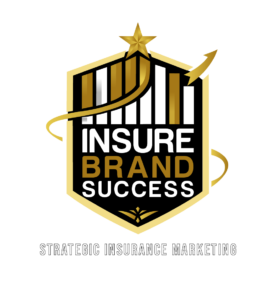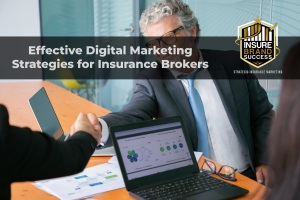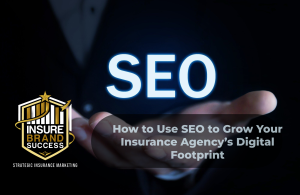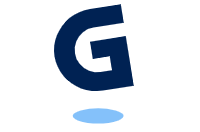Artificial Intelligence (AI) isn’t the future of insurance marketing, it’s the now. Across the industry, forward-thinking agencies are using AI not as a replacement for human insight, but as a strategic tool that amplifies what already makes them successful: connection, personalization, and trust.
For insurance agency owners and marketing professionals, AI has quickly become one of the most powerful engines driving lead generation, client acquisition, and long-term retention. It’s transforming how agencies attract prospects, engage with them across digital channels, and nurture relationships at scale, all while improving ROI.
What makes this transformation remarkable is not just the technology itself, but what it enables agencies to do differently. AI bridges the gap between data and empathy, helping teams understand clients’ needs more deeply and respond with greater relevance. Imagine a world where your agency anticipates when a family might start comparing life insurance quotes, or when a small business is preparing to renew its commercial coverage. Through data-driven predictions and automated insights, AI makes that possible, turning every touchpoint into an opportunity for meaningful connection.
And yet, the heart of AI innovation in insurance isn’t about automation, it’s about elevation. By removing the repetitive, time-consuming tasks that often consume a team’s day, AI allows agencies to focus on what truly matters: building relationships, earning trust, and crafting experiences that set them apart in an increasingly competitive market. As more agencies adopt insurance marketing strategies powered by AI, those that combine technology with human understanding will define the industry’s next era of growth.
1. The Rise of AI in Insurance Marketing
The insurance industry has always relied on data, from actuarial tables to underwriting risk models. What’s changed is how that data is now being interpreted and applied.
AI and machine learning can process millions of data points in real time, uncovering patterns in customer behavior that would take humans months to detect. This capability is enabling agencies to refine their insurance marketing strategies with unprecedented precision.
According to the National Association of Insurance Commissioners (NAIC), AI is increasingly being used by insurers for everything from claims processing to customer engagement. But when it comes to marketing, the most significant payoff comes in lead generation, identifying the right prospects, at the right time, with the right message.
The Opportunity
For small and mid-sized agencies, the entry barrier is lower than ever. Tools once reserved for enterprise carriers, such as predictive analytics, natural language processing, and AI-powered CRMs, are now accessible through cloud-based marketing platforms.
That accessibility means independent agencies can now compete head-to-head with national brands in digital reach and conversion efficiency.
2. Smarter Lead Generation Through Predictive Analytics
AI is redefining what “targeting” means. Traditional segmentation, such as age, income, or zip code, is being replaced by predictive modeling that evaluates intent, likelihood to convert, and even emotional motivators.
Through predictive analytics, agencies can now anticipate client needs before they express them.
For example, by integrating AI tools into digital marketing for insurance agencies, data from search behavior, website visits, and engagement with ads can predict which prospects are actively shopping for coverage. That insight allows your agency to deliver personalized content, like auto policy quotes or life insurance comparisons, exactly when prospects are most receptive.
Practical Application:
- AI-driven ad optimization: Using Google’s AI-powered bidding strategies in AdWords for insurance agencies helps automatically adjust bids based on real-time performance data, reducing wasted ad spend.
- Behavioral scoring models: AI systems can rank prospects based on their conversion potential, ensuring your team focuses efforts where they’re most likely to close deals.
- Data enrichment: AI tools can append additional data, such as homeownership status or social media sentiment, to existing leads, allowing for deeper personalization.
The result? Higher-quality leads, more efficient campaigns, and better ROI.

3. Personalization at Scale: From Generic Outreach to Human Connection
In an industry built on relationships, personalization is everything. But for many agencies, delivering one-to-one communication across hundreds of clients feels impossible, until AI enters the equation.
AI makes hyper-personalization scalable. It can analyze customer profiles, past interactions, and purchase history to create customized messages, policy recommendations, and follow-ups.
For example, insurance agencies using insurance email marketing platforms powered by AI can automatically send tailored policy renewal reminders, cross-sell offers, or birthday messages that feel personal, without manual input.
Benefits of AI-Powered Personalization:
- Dynamic content: Email and website content that adapts to user behavior in real time.
- Chatbots and virtual assistants: AI-driven chat tools can qualify leads 24/7 and answer basic coverage questions while your team focuses on higher-value interactions.
- Automated follow-ups: Predictive triggers can send follow-up messages when a lead revisits your quote page or downloads a resource.
According to the Small Business Administration (SBA), personalized communication increases engagement and strengthens client loyalty, a key factor in long-term retention.
4. AI in SEO and Content Strategy: Ranking Smarter, Not Harder
Search visibility remains one of the most critical factors in lead generation. But with algorithm updates becoming increasingly complex, agencies are turning to AI to stay ahead.
AI tools like SEMrush, SurferSEO, and Jasper can analyze top-performing keywords, competitor content, and backlink profiles, and then help agencies optimize their pages accordingly.
At Insure Brand Success, our team integrates AI insights into every aspect of our SEO for insurance brokers and insurance SEO services, ensuring agencies not only rank higher but also attract the right kind of traffic, qualified prospects ready to convert.
AI Advantages in SEO:
- Keyword clustering: AI identifies topic clusters that align with search intent, improving authority and topical relevance.
- Content optimization: Tools analyze readability, keyword density, and competitor positioning in seconds.
- Voice search readiness: AI helps structure content to match how users speak, not just how they type, increasingly critical as voice assistants grow in popularity.
By aligning your strategy with AI-enhanced SEO insights, your agency builds visibility, trust, and sustainable lead flow.
5. Intelligent Web Design and User Experience
Your website is often the first interaction a prospect has with your agency. With AI, it can also be the first conversation.
AI-driven websites use behavioral data to adapt layouts, CTAs, and navigation to each visitor’s preferences. A user exploring commercial insurance may see different resources than one interested in homeowners’ policies.
Through web design for insurance agencies optimized with AI tools, agencies can reduce bounce rates, increase form submissions, and deliver seamless experiences that convert visitors into leads.
AI Web Design Features:
- Chat-based navigation: Conversational interfaces that guide visitors to the right coverage information faster.
- Heatmap analytics: AI tools track user behavior to continuously refine layout and design.
- Personalized landing pages: Dynamic headlines and images that adjust to the visitor’s search query or campaign source.
As the Insurance Information Institute (III) reports, digital experience is now a leading factor influencing customer trust in insurance brands, often more than pricing itself.

6. AI in Social Media: Listening, Learning, and Engaging Smarter
Social media remains a vital channel for awareness and lead generation, but cutting through the noise requires strategy. AI tools now make it possible to automate, analyze, and personalize social interactions more intelligently than ever.
Through social media strategies informed by AI, agencies can track engagement patterns, monitor sentiment, and identify the best times to post for maximum visibility.
AI Social Use Cases:
- Sentiment analysis: Understanding how clients feel about your brand and responding proactively.
- Predictive posting: AI determines when your audience is most active to maximize reach.
- Ad audience refinement: AI dynamically adjusts targeting parameters based on real-time campaign results.
For insurance agencies, AI doesn’t just make social media more efficient, it makes it more human. By automating repetitive tasks, your team can focus on meaningful, empathetic interactions with clients and prospects.
7. Strengthening Client Retention with AI Insights
AI’s value doesn’t end once a lead becomes a client. Retention is where it often has the greatest impact.
By combining behavioral analytics and CRM data, AI can identify policyholders who might be at risk of leaving, such as those who haven’t engaged with renewal emails or visited your portal in months.
Integrating this intelligence into your client acquisition and retention programs allows your agency to intervene early with personalized offers or check-ins.
Example:
If AI detects a customer is visiting your competitors’ pages or requesting quotes elsewhere, your system can trigger a retention campaign with a renewal incentive or personalized policy review.
This proactive approach not only reduces churn but also reinforces the human touch, showing clients that your agency genuinely cares about their needs.
8. Overcoming the Human-AI Balance
While AI is a powerful tool, it doesn’t replace the empathy, trust, and ethics that define successful insurance relationships. The real challenge, and opportunity, lies in combining machine precision with human understanding. The agencies that thrive are those that use AI to enhance empathy, not eliminate it.
It’s easy to see AI as a solution to every marketing challenge: faster data, smarter targeting, automated campaigns. But the human element remains irreplaceable. Insurance, at its core, is about protecting people’s lives, families, and futures. Clients don’t just want efficiency; they want reassurance. When an algorithm predicts the best moment to reach out, it’s still the advisor’s tone and understanding that convert interest into loyalty.
Forward-thinking agencies are learning to let AI handle the analytics while their teams focus on meaningful human engagement. AI might flag a client likely to lapse on a renewal, but it’s the agent’s empathetic phone call or personalized email that restores trust and connection. In this way, technology becomes a partner, not a substitute, for genuine care.
The U.S. Department of Commerce has emphasized the importance of responsible AI adoption, encouraging businesses to uphold fairness, transparency, and accountability. For insurance agencies, this means not only using AI ethically but also maintaining the warmth, context, and understanding that define lasting relationships. True innovation happens when agencies balance insight with intuition, when data supports, but never replaces, the human touch.

9. Real-World Results: AI in Action for Insurance Agencies
Across the U.S., forward-thinking agencies are already seeing measurable outcomes from integrating AI-driven marketing strategies.
Case Snapshot:
A mid-sized auto insurance agency implemented AI-powered ad optimization and automated email nurturing through Insure Brand Success. Within six months, they reported:
- 42% increase in qualified leads
- 28% lower cost per acquisition
- 35% higher email engagement rate
By combining insurance marketing strategies with data automation, they achieved sustainable growth without adding new staff, proof that AI isn’t replacing marketers, it’s empowering them.
10. How Insurance Agencies Can Get Started with AI
For agencies ready to embrace AI, the transition doesn’t need to be overwhelming. Start small, stay strategic, and focus on tools that complement your existing workflows.
Step 1: Audit Your Data
Review your CRM, email, and analytics platforms. Data quality is the foundation of effective AI, clean, structured information yields accurate insights.
Step 2: Choose the Right Tools
Start with proven, user-friendly options integrated into marketing platforms like HubSpot, Salesforce, or Google Ads.
Step 3: Train and Align Your Team
AI works best when humans understand how to interpret its outputs. Provide your marketing and sales teams with training on data interpretation and ethical AI use.
Step 4: Partner with Experts
Collaborating with specialists in digital marketing for insurance agencies ensures your strategy is guided by both industry expertise and cutting-edge technology.
Step 5: Measure, Refine, Repeat
AI thrives on iteration. Continually track performance, test new ideas, and let data inform your next move.
11. The Future of Lead Generation Is AI-Driven, and Human-Centered
Artificial intelligence is not replacing the human touch in insurance, it’s redefining how we use it. By blending data-driven precision with empathy and relationship-based selling, agencies can serve clients more effectively while growing sustainably.
At Insure Brand Success, we help agencies bridge that gap, transforming complex AI capabilities into simple, actionable insurance marketing strategies that build trust, strengthen engagement, and drive measurable growth.
If your agency is ready to elevate its lead generation with smarter technology and authentic connection, explore our services in SEO for insurance brokers, insurance email marketing, and social media for insurance, or connect with our team to build a strategy that fits your agency’s goals.




